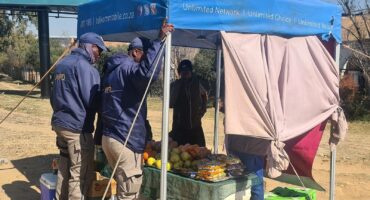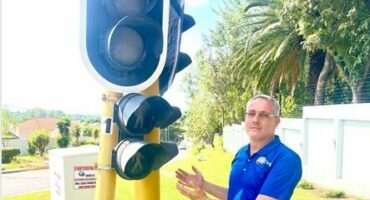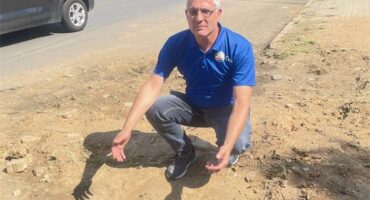Local wildlife veterinary hospital calls for harsher punishments for the illegal trade of wildlife animals for pets
The Johannesburg Wildlife Veterinary Hospital based in Glenferness has warned the public of the dangers of owning wild animals as pets.

Following the euthanasia of eight-year-old female tiger Sheba that escaped from Walkerville injured a human and killed several domestic animals, Johannesburg Wildlife Veterinary Hospital has warned about the dangers of keeping wild animals as pets as opposed to domesticated animals.
The veterinary hospital’s legal and operations lead, Wendy Willson pointed out the substantial increase in illegally traded wild animals as pets since the organisation’s inception. This increase has been recorded within indigenous species and has noted a 200 to 1 000% species-dependent increase.
“There are animals such as dogs and cats that have adapted and evolved over thousands of years to live alongside humans as part of the family, wild animals have not. A wild animal cannot have all its needs for health and welfare met in captivity, but many individuals and collectors want to own wildlife simply for the ego boost it provides,” she said.
“The impact these ‘ego buys’ is having on our natural habitat is often substantial, and it continues to fuel the already rampant illegal wild animal trade. Add to this the fact that the costs to rescue, treat, re-wild and release an indigenous wild animal who has fallen victim to the wild animal trade is massive.”

Willson added that the damage caused by this trade affects both humans and animals, as both are naturally linked to one another.
“It is imperative to remember that these wild animals kept as pets are being kept in unnatural habitats. No matter how good the conditions, or the cage, or the overall input into that wild animal’s captivity, it is still impossible to meet even the basic ‘Five Freedoms of Animal Welfare’ for that animal,” she said.
“Very little is being done from a legislation point of view to prevent tragedies such as what happened with Sheba from happening again. These wild animals that are being kept as pets are set up for failure, but we are all horrified when the animals act out their natural behaviour as Sheba did.”
Willson believes enforcement entities, the judicial system and legitimate wildlife subject matter experts are needed to work together and secure strong charges on those found guilty of illegal activities with wild animals. Once prosecuted, cases like these can serve as examples to make people think twice about illegal keeping and trading in wildlife.
“Another challenge we face is that currently, there are very few tangible consequences to owning such wild animals, especially if they are exotic – meaning the reward currently is still greater than the risk. More education, regulation and effective enforcement are needed in this space.”

Enforcement is more critical now than ever, as Willson pointed to the increase the veterinary hospital has seen in the trade in indigenous animals in the last 12 months including reptiles like Southern African pythons, chameleons, monitors and tortoises, along with meerkats, serval, vervet monkeys, baboons, mongooses, badgers, owls and jackals.
“It is vital to understand the skills needed to care for exotic animals properly are substantial – and most people don’t have them. Cases such as Sheba clearly show an increase, not only in ownership but in irresponsible ownership,” she said.
“The veterinary hospital calls on all citizens to avoid illegal buying and keeping wild animals of any kind, and more crucially, to report others who do.”
Share your thoughts on the Fourways Review Facebook page.
Related articles:
Q and A with Johannesburg Wildlife Veterinary Hospital on illegal wild animal trade



